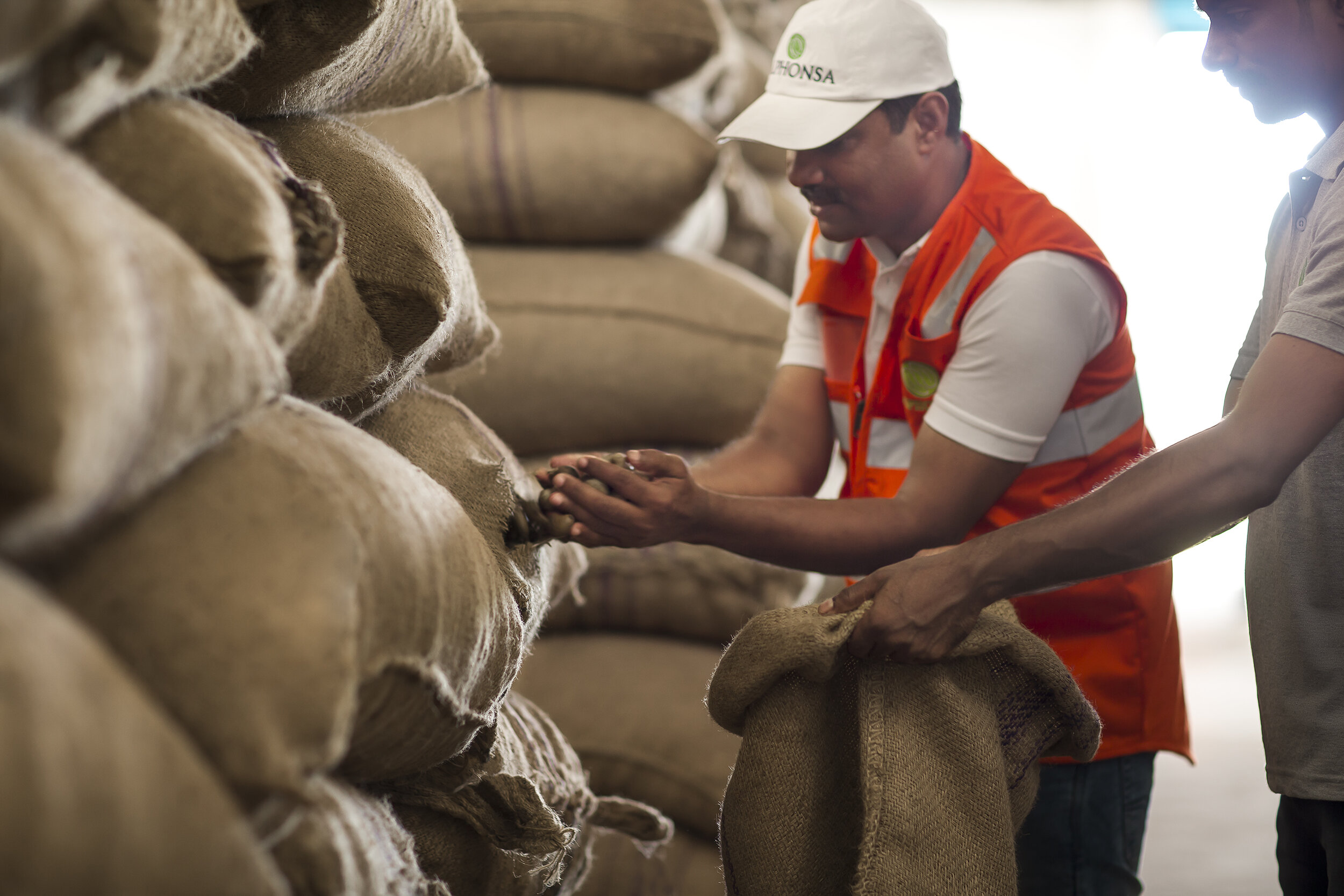SUSTAINABLE FUTURE
ENVIRONMENTAL POLICY
We believe that addressing and mitigating environmental impacts arising out of our business activities is an important part of doing business. This is enabled by our commitment and continuous effort to address important environmental issues.
As a manufacturing business, our operations can have a significant impact on the environment if appropriate steps to prevent and contain such adverse effects are not taken by us. All of our processing facilities comply with all the rules, regulation and acts of Central and State Governments.
Our Policy
To contribute to the sustainable and responsible business by establishing and implementing environmental standards that meet the requirement of local and international laws, regulations, acts and best practices.
To adopt sustainable and responsible cashew processing methods that are resource- efficient and cleaner for the environment.
To continue to increase the contribution from renewable energy sources towards meeting overall energy demand.
Certification
Sedex SMETA 4 Pillar (Certification in Progress)
Sedex Members Ethical Trade Audit (SMETA) is one of the most widely used ethical audit formats in the world. The certification encompass all aspects of responsible business practice and provides a globally-recognised to assess Sedex’s four pillars of Labour, Health and Safety, Environment and Business Ethics. The measurement criteria are based on the Ethical Trading Initiative ETI Base Code and is based on both international standards and International Labour Organization (ILO) conventions.
ISO 14001:2015 Environmental Management Systems
ISO 14001:2015 specifies the requirements for an environmental management system that an organization can use to enhance its environmental performance. ISO 14001:2015 is intended for use by an organization seeking to manage its environmental responsibilities in a systematic manner that contributes to the environmental pillar of sustainability and can be used in whole to systematically improve environmental management.
Initiative
Signatory to United Nations Global Compact
Alphonsa Cashew Industries formally joined the United Nations Global Compact in the Food Producers category on 1st October 2018. UN Global Compact is the world’s largest corporate sustainability initiative, with thousands of business participants and other stakeholders from civil society, labour and government based in over 160 countries. UN Global Compact requires participants to internalise the Ten Principles within the company’s strategies, policies and operations, and to advance broader development goals of the United Nations, particularly the Sustainable Development Goals. The Ten Principles of the United Nations Global Compact are derived from: the Universal Declaration of Human Rights, the International Labour Organisation’s Declaration on Fundamental Principles and Rights at Work, the Rio Declaration on Environment and Development, and the United Nations Convention Against Corruption.
Framework
Rio Declaration on Environment and Development
Guiding Principles
UNGC Principle 7
Businesses should support a precautionary approach to environmental challenges.
UNGC Principle 8
Undertake initiatives to promote greater environmental responsibility.
UNGC Principle 9
Encourage the development and diffusion of environmentally friendly technologies.
Guide
Alphonsa Cashew Industries Code of Conduct
Handbook
Download our Environmental Policy Handbook








